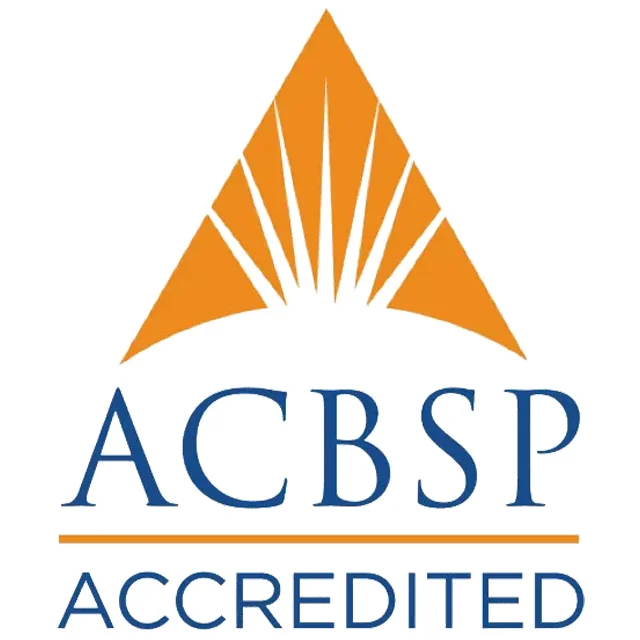Alumni will go on to successful careers as:
- Accountants
- Business analysts
- Business consultants
- Business managers
- Data analysts
- Financial analysts
- Human resource specialists
- Marketing managers
- Project managers
- Sales managers

 The business administration major equips students for careers across business, non-profit, and government sectors, offering the flexibility to customize their academic path to meet their goals. Students gain a strong foundation through a comprehensive curriculum that includes courses in accounting, marketing, management information systems, economics, corporate finance, statistics, politics, business ethics, business law, and international business. The business administration major integrates the Benedictine principles of community, stewardship, and ethical leadership, which guide students to not only excel professionally but also lead with integrity and social responsibility in the global marketplace. Saint Vincent students graduate as leaders prepared to make a positive impact in any organizational setting.
The business administration major equips students for careers across business, non-profit, and government sectors, offering the flexibility to customize their academic path to meet their goals. Students gain a strong foundation through a comprehensive curriculum that includes courses in accounting, marketing, management information systems, economics, corporate finance, statistics, politics, business ethics, business law, and international business. The business administration major integrates the Benedictine principles of community, stewardship, and ethical leadership, which guide students to not only excel professionally but also lead with integrity and social responsibility in the global marketplace. Saint Vincent students graduate as leaders prepared to make a positive impact in any organizational setting.
Phone:
800-782-5549
Ext. 2500
Email:
admission@stvincent.edu


The Women in Business Club hosts an annual panel discussion with local businesswomen, and along with several other universities, helps SVC host the Women Who Lead Conference in Pittsburgh. Membership in our chapter of Delta Mu Delta Honors Society gives students an international community of like-minded peers as well as a variety of professional development experiences and networking opportunities.

Saint Vincent’s Business Department offers several add-on certificates to make you more knowledgeable and marketable in your field of choice. Choose to earn a certificate in entrepreneurship, hospitality, non-profit, operational excellence, organizational leadership, project management, SAP, or supply chain. Our Master of Science Degree in Management: Operational Excellence complements the undergrad experience while preparing students for leadership roles in organization and industry.
Alumni will go on to successful careers as:


The business administration major is part of the Alex G. McKenna School of Business, Economics, and Government and supported by our core curriculum, where students delve into diverse academic subjects at both foundational and advanced levels to explore how different disciplines connect, fostering deeper self-understanding and proficiency in their chosen field of study.
Core business requirements for all business majors
Plus, the following requirements for the business administration major
Required courses
In addition to the above, any three of the following courses:
Principles of Marketing: This course introduces you to the essentials of business—like product design, pricing, advertising, and promotion—while exploring how businesses and consumers make decisions. You’ll learn through real-world examples, case studies, group projects, and even marketing simulations all designed to give you a solid foundation in marketing strategy.
Business Ethics: In this course, you’ll sharpen your critical thinking and ethical reasoning skills by tackling real-world business challenges. You’ll study key concepts in business ethics and apply them through short written and oral presentations based on current case studies.
Business Policy and Strategy: In this capstone experience, you’ll bring together everything you’ve learned to create and implement a strategic plan for an organization. Through case studies, presentations, and the Business Strategy Game simulation, you’ll practice making decisions that drive long-term success.

This award-winning center provides entrepreneurs with the education, information, and tools necessary to start or grow a small business in Westmoreland and Fayette Counties.

Rooted in our nearly two decades of focus on Operational Excellence, this unique lab provides further hands-on learning to our students and allows our faculty to extend our offerings to organizations pursuing our unique version of Operational Excellence.
The McKenna School of Business has seven undergraduate programs and one graduate program accredited by the Accreditation Council for Business Schools and Programs (ACBSP). They are: Accounting, Business Education Information Technology, Business Economics, Finance, International Business, Economics, Management, Marketing and the Master of Science in Management: Operational Excellence graduate program. Three programs in Business Data Analytics (launched Fall 2020), Sports Management (launched Fall 2021) and Business Administration (launched Fall 2021) are in candidacy for accreditation. 
With a requirement for faculty professional development (e.g., publications and research) and courses primarily taught by faculty holding doctorates, the ACBSP is the leading business accreditation program devoted to teaching excellence and service to students. Attributable to our ACBSP accreditation, students receive in depth knowledge in 12 business core competency areas: Accounting, Management, Business Ethics, Marketing, Information Systems, Business Finance, the Legal Environment of Business, Statistics, Business Policies, Economics, Quantitative Skills and Global Dimensions in Business.
The McKenna School is also a member of the Middle Atlantic Association of Colleges of Business Administration. The Politics and Criminal Justice programs are not accredited through the ACBSP; however, all programs in the McKenna School have regional accreditation through the Middle States Association. The ACBSP is one of the two premier accrediting agencies for business schools worldwide.
Phone:
800-782-5549
Ext. 2500
Email:
admission@stvincent.edu